Commission Wants Education To Top the EU Agenda but the Council Is Wary
Adelina Marini, February 23, 2018
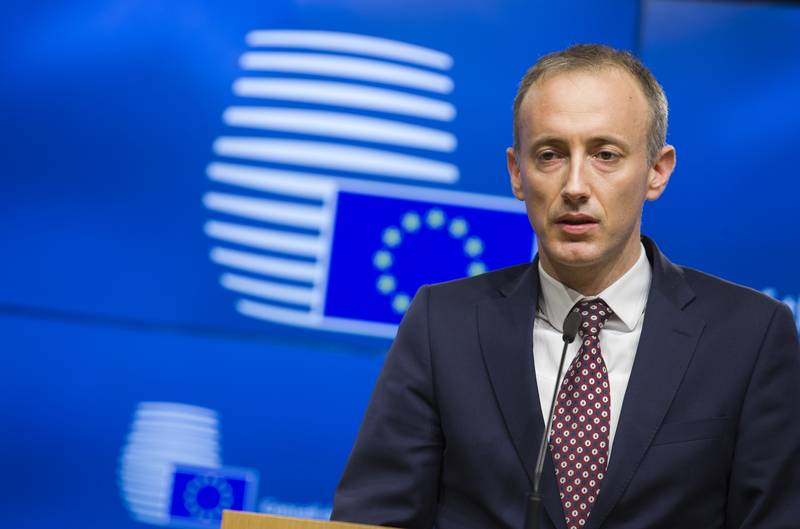 The European Commission wants to make a revolution in European education and to create, probably, the greatest integrational epicentre in the EU but the member states are for now inclined only to put another brick in the wall. Moreover, the eurosceptic Visegrad suburb of the EU is very likely to turn the epic Pink Floyd hit "Another Brick in the Wall" into a powerful propaganda against the just starting march for values in the EU, singing in another context the unforgettable refrain "We don't need no education. We don't need no thought control. No dark sarcasm in the classroom. Teachers leave them kids alone". After the European Council took the reins off the hands of the Council of Ministers with Donald Tusk's Leaders' Agenda, the EU education ministers all of a sudden emerged under the spotlight - some of them happy but others in fear.
The European Commission wants to make a revolution in European education and to create, probably, the greatest integrational epicentre in the EU but the member states are for now inclined only to put another brick in the wall. Moreover, the eurosceptic Visegrad suburb of the EU is very likely to turn the epic Pink Floyd hit "Another Brick in the Wall" into a powerful propaganda against the just starting march for values in the EU, singing in another context the unforgettable refrain "We don't need no education. We don't need no thought control. No dark sarcasm in the classroom. Teachers leave them kids alone". After the European Council took the reins off the hands of the Council of Ministers with Donald Tusk's Leaders' Agenda, the EU education ministers all of a sudden emerged under the spotlight - some of them happy but others in fear.
The December EU summit marked a precedent by adopting for the first time conclusions to develop integration in the most conservative and strictly national area of education. The conclusions have a much weaker ambition than the Commission wanted but, nevertheless, it proved too big for the Council as their first public discussion of the 14 December European Council conclusions showed. Before the ministers were invited by the Bulgarian presidency to discuss the decisions of the heads of state and government, the European Commission poured more oil onto the smoldering fire of European integration.
On January 17th, the Commission published a package of three initiatives containing specific recommendations for the member states, thus catching very well the global and domestic European pulse. They are in addition to the key competences agreed in 2006: communicating in mother tongue, communicating in foreign languages, mathematical competence and basic knowledge of science and technologies, digital competence, social and civic competence, entrepreneurship, cultural awareness and expression. The initiatives are interconnected and in their foundation lies the European system of values.
The main objective, as described by EU Commissioner for Education, Culture, Youth and Sports Tibor Navracsics (Hungary, EPP), is EU education and training systems to create engaged citizens. "We need to harness the potential of education to foster social cohesion and a sense of belonging. To do so, we have to build on our common values and make sure that education enables pupils to experience their European identity in all its diversity, learn more about Europe, about other European countries and about themselves", the commissioner said when presenting the package.
The first recommendation is aimed at a comprehensive reform of education with the objective to develop the 21st century key competences. "Our societies and economies rely heavily on highly educated and competent people. Skills such as creativity, critical thinking, taking initiative and problem solving play an important role in coping with complexity and change in today's society", the first recommendation says. The member states are recommended to re-orient their curricula toward mathematics, science, technologies, coding, foreign languages. Moreover, reforms have to start urgently because between 2012 and 2015 there has been a clear trend of deterioration of achievements in EU at large. Almost half of the EU population (44%) has low digital skills, whereas 19% have none.
The second initiative is A Digital Education Action Plan. According to the Commission, "education should help empower young people to articulate and engage, participate and shape the future of a Europe characterised by democracy, solidarity and inclusion". The Commission says reforms are being carried out every year but divide among member states and within them is persistently big. Vulnerable groups are most affected. The Commission, not for the first time, outlines as a serious problem the fact that there is no interest among girls to pursue informatics and communication technologies, science, technologies, engineering or mathematics. "This leads to lost social and economic opportunities and risks reinforcing gender inequality", is said in the introduction of the plan.
Another problem the Commission outlines in its initiatives is that more than 80% of young people in Europe use the internet for social activities and mobile access has increased significantly in the past years. Despite this, education is lagging behind technologies. Not all primary or secondary schools in the EU have broadband access and not all teachers have competences or confidence to use digital tools in 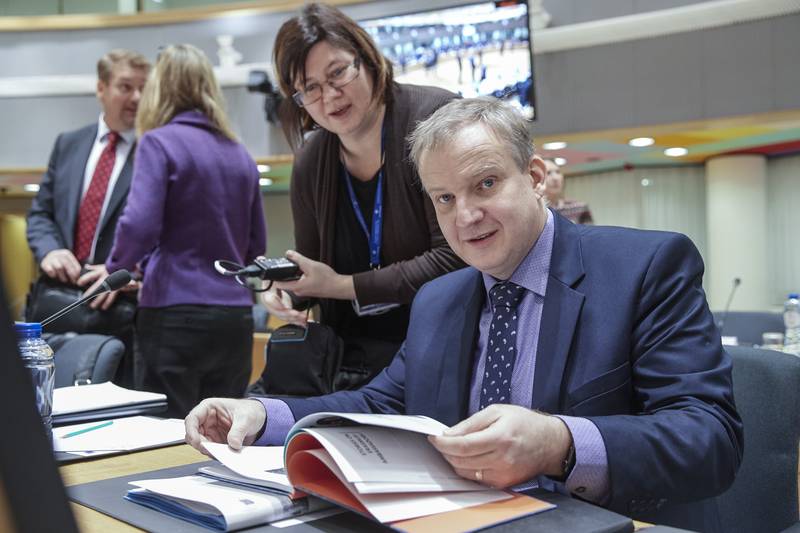 support of their teaching. In 2015, 18% of primary and secondary schools in the EU were not connected to broadband internet, according to a study quoted by the Commission.
support of their teaching. In 2015, 18% of primary and secondary schools in the EU were not connected to broadband internet, according to a study quoted by the Commission.
In its plan for digital education, the Commission admits that a serious source of threat are the social networks and portals algorithms, which promote fake news and bias. "Everyday exposure to digital data driven largely by inscrutable algorithms creates clear risks and requires more than ever critical thinking and the ability to engage positively and competently in the digital environment", the plan says. The Commission recommends that member states pay serious attention to media literacy and introduce in their education programmes for safety, security and privacy on the internet.
The third initiative is a recommendation for the member states to include in education, from the earliest possible age, the EU common values. "There are worrying signs that the necessary knowledge of our common values and of the role of national and European democracy is not embedded enough, which risks leading to their erosion and challenges the cohesion of our societies in Member States as well as at the EU level. The promotion of these common values embedded in Article 2 of the Treaty on European Union is vital to strengthen our national democracies and bolster our Union", the recommendation says.
In some member states, civic education is taught at school, which sometimes means lessons in why the member states have chosen voluntarily to cooperate and to integrate in the EU. "A lack of awareness of the EU’s origins, the reasons for its creation and its basic functioning favours misinformation and prevents the formation of informed opinions on its actions. Moreover, knowledge about the social, religious and cultural diversity, and the heritage, traditions and political realities of one’s own country, of other Member States and of other countries in the world, is essential for mutual respect, understanding and cooperation within and amongst Member States and with the world at large", the recommendation says.
The Commission advises the member states to do what is necessary children and young people to acquire social, civic and intercultural competences by promoting democratic values and fundamental rights, social inclusion and non-discrimination, active citizenship. It is also recommended to create critical thinking and media literacy, especially in terms of the use of internet and social networks as well as building resistance to divisive narratives, polarisation and indoctrination. The Commission believes that the member states should introduce a European dimension in education.
A European student card, a network of universities and multilingualism
The problem is, however, that these are just recommendations because the EU treaties are completely neutral in the area of education. On February 15th, the education ministers for the first time discussed the European Council conclusions from December 14th. The presidency proposed the 28 ministers to deliberate on two questions: how exactly to approach the initiatives for introduction of European universities, language learning, mutual recognition of diplomas and a European student card; and what measures to be adopted regarding digitalisation and the need of an inclusive, life-long learning.
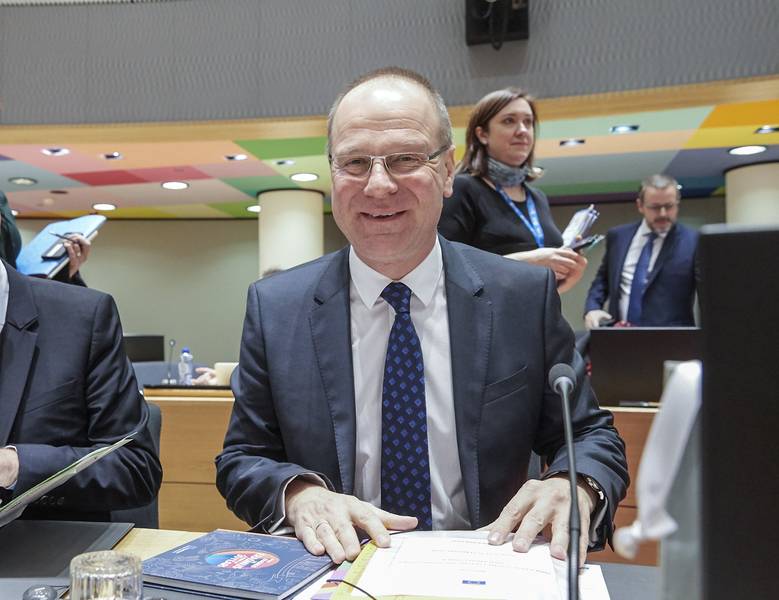 Under development is a pilot project for a European student card which will be tested for the first time in 2019. It will contain academic information about students if they decide to transfer in a university in another member state. The card is supposed to replace academic transcripts. At the meeting last Friday, only The Netherlands expressed reservations against the card. "We're not sure that's a priority but also because of privacy issues for students", said Dutch Education Minister Ingrid Van Engelshoven. She believes that it is better to work more on mutual recognition of diplomas.
Under development is a pilot project for a European student card which will be tested for the first time in 2019. It will contain academic information about students if they decide to transfer in a university in another member state. The card is supposed to replace academic transcripts. At the meeting last Friday, only The Netherlands expressed reservations against the card. "We're not sure that's a priority but also because of privacy issues for students", said Dutch Education Minister Ingrid Van Engelshoven. She believes that it is better to work more on mutual recognition of diplomas.
Diplomas recognition is one of the priorities at the moment. The Commission wants automatic recognition. Every diploma issued by an accredited institution in the EU should be automatically accepted as a European diploma, explained Commissioner Navracsics during the meeting. At the moment, the situation is quite fragmented. The Benelux countries have recently signed an agreement on mutual recognition, and the Baltic states are expected to sign a similar agreement by the summer once their national procedures are completed. Spain supports completely the automatic recognition but some members expressed reservations. Especially distinctive were the reservations in the Visegrad suburb. Alexander Bobko, state secretary in the Polish ministry of science and high education, was worried that mutual recognition will lead to harmonisation.
And Italy is of the opinion that the EU must go even further - harmonisation of curricula and simplification of university entry procedures. The Czech Republic is also reserved. "Mutual recognition could enhance student mobility but any system must not be about harmonising the secondary curricula", said the Czech representative. Austria as well has reservations but for other reasons. The Austrian Education Minister Heinz Fassmann has nothing against automatic recognition but believes that the problem with private schools must be resolved first because very often the quality there is poor. He recommended mutual recognition to be based on quality.
The establishment of a network of European universities is entirely an idea of French President Emmanuel Macron, but there is no unanimity here too, although work has just started. The objective is by 2024 twenty university networks to be established. They have to have joint long-term strategies for joint bachelor, masters and PhD programmes which are to end with a joint European degree. The Commission has the ambition the first pilot networks to start as early as next year. Ireland was especially enthusiastic about the idea. According to Richard Bruton, the minister of education, many universities are just waiting to get involved. He warned, however, that the idea should not degenerate into a network of first league universities but to be geographically inclusive.
All smaller member states insisted the geographic balance to be the leading factor. Croatian Minister of Education Blazenka Divjak proposed at least one university per a member state to be involved in at least one university network. She also proposed the management of networks to be decentralised. "The European networks should not serve only to the known frontrunners becoming an exclusive club", the Croatian minister added. Poland was sceptical on this issue too. Secretary Bobko asked how will the networks be funded and whether they will not be to the detriment of financing student mobility. He emphasised that it is important to take into account university independence and asked for caution university not to be burdened additionally with new costs.
The Czech Republic was also sceptic saying that the specifics of education in each member state must be taken into account. Besides, this initiative should be funded by European programmes to avoid affecting national programmes. Jindrich Fryc, state secretary in the Czech ministry of education, believes that universities should also be involved in the debate. Luxembourg shares this opinion as well. And Austria believes that there already are enough university networks. Estonia, too, called to avoid 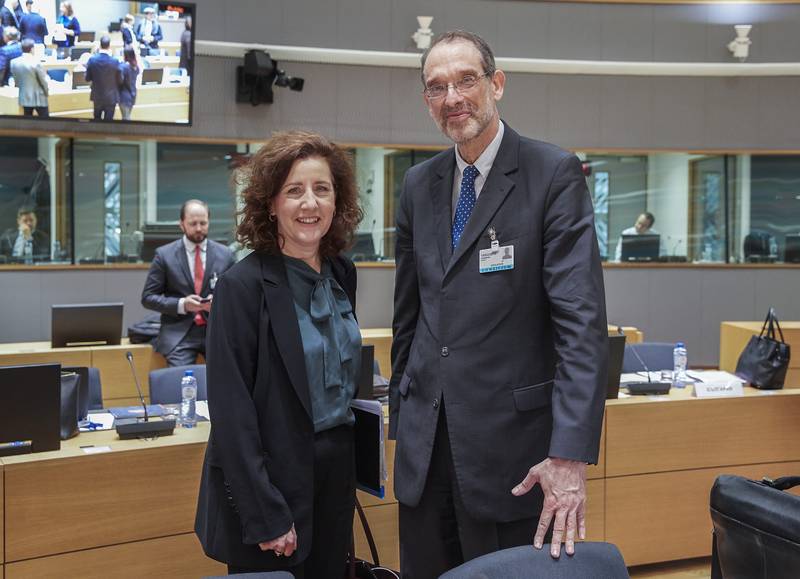 duplication of already existing initiatives. Estonia's deputy permanent representative Clyde Kull said that the establishment of networks or joint curricula cannot be an objective in itself.
duplication of already existing initiatives. Estonia's deputy permanent representative Clyde Kull said that the establishment of networks or joint curricula cannot be an objective in itself.
After the end of the discussion Commissioner Tibor Navracsics warned that the most important thing at the moment is to find common ground because "education now is at the top of the political agenda". "We have a momentum now and we must not waste it", he said and again stressed that there is a very sharp competition globally not only in the economy but in education as well. Current alliances, federations and other university organisations are a good thing but are not enough, the commissioner thinks. On behalf of the presidency, the Bulgarian Education Minister Krassimir Valchev said that the existing policies should be analysed first before introducing new ones.
 | © euinside
| © euinside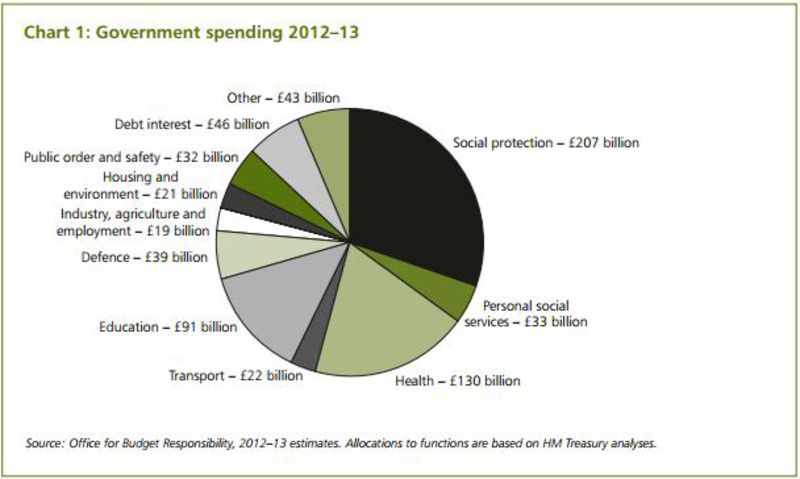 | © hm-treasury.gov.uk
| © hm-treasury.gov.uk | © EU
| © EU